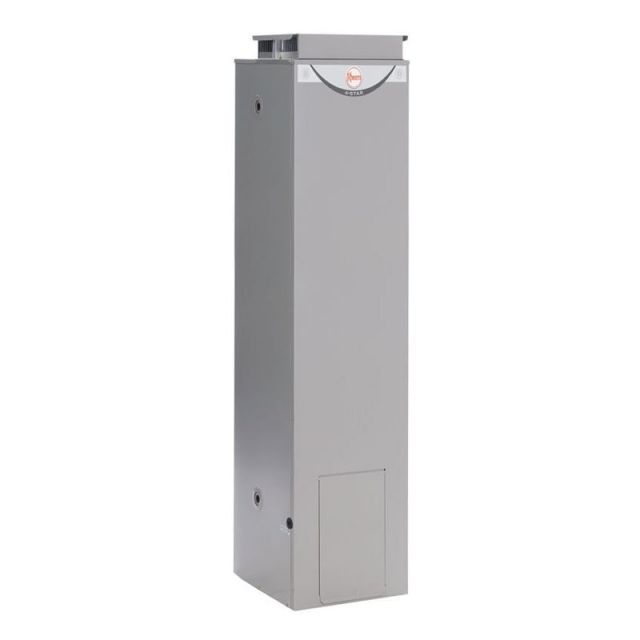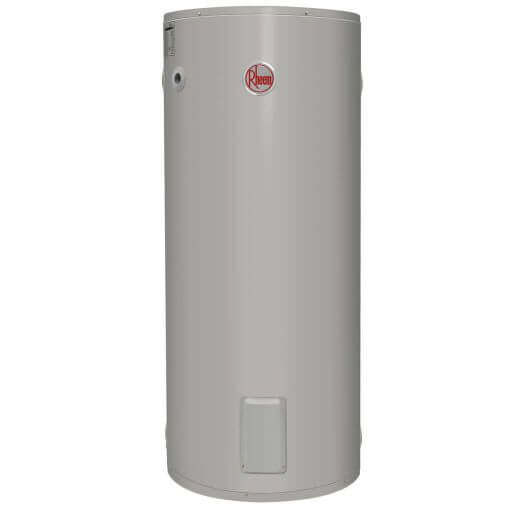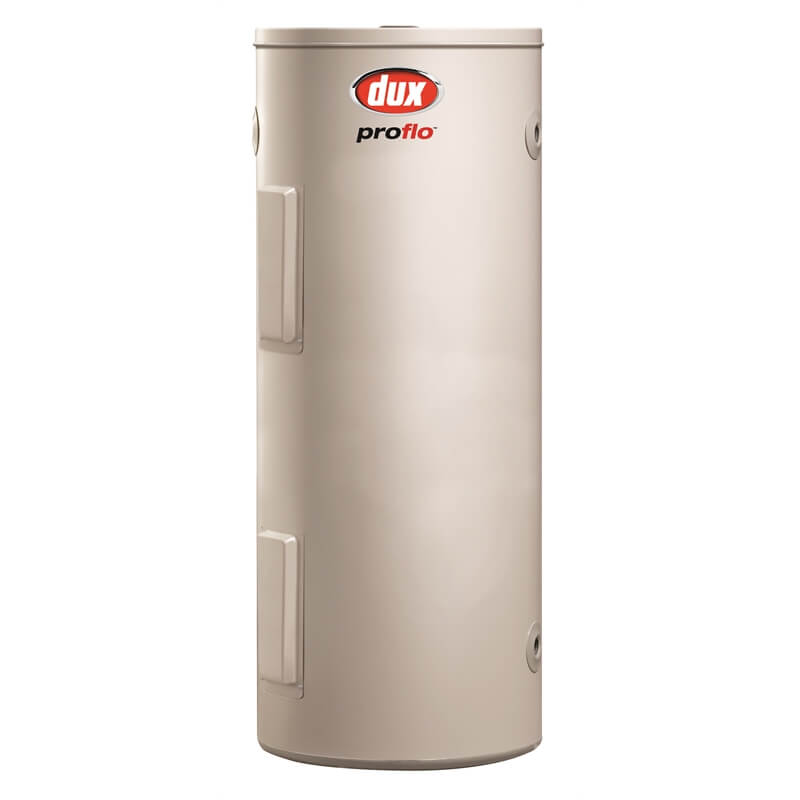Hot Water Repairs & Installations | A Family business For Over 20+ Years

We're Open 7 Days
Hot Water Central Coast

Rheem Warranty
Rheem Hot Water Systems

Call 02 4362 7057
Based @ Central Coast
Hot Water Repairs & Installations | A Family business For Over 20+ Years

Hot Water Central Coast

Rheem Hot Water Systems

Based @ Central Coast
The biggest question when it comes to replacing your hot water system is, gas vs electric hot water heaters: which is right for you?
In the modern home, few things are as essential as a reliable hot water system. Whether it’s for a refreshing morning shower, washing dishes after a family dinner, or ensuring your clothes are spotlessly clean, the right hot water heater plays a pivotal role in our daily routines. But with the myriad of choices available in the market, how does one decide between a gas or electric hot water heater? Which one aligns best with your household’s needs, budget, and long-term goals?
Navigating these choices can be daunting, but that’s where expertise comes into play. At Best Price Hot Water, we’ve dedicated ourselves to understanding the intricacies of hot water systems, especially for the residents of the Central Coast. With years of experience under our belt, we’ve seen firsthand the benefits and challenges of both gas and electric systems. As you read on, we’ll look into the heart of the matter, comparing these two popular options, so you can make an informed decision for your home.
Stay with us as we break down the pros and cons, the costs, and the considerations you need to keep in mind. Remember, the right choice isn’t just about today; it’s about ensuring comfort and efficiency for years to come. And with Best Price Hot Water by your side, you’re already on the path to making the best decision for your Central Coast home.
At its core, a hot water heater is a marvel of modern engineering. It’s a household appliance designed to heat and store water, ensuring that you have a steady supply of hot water whenever you need it. Whether you’re filling up a bathtub, doing the laundry, or simply washing your hands, the hot water heater ensures that you’re not greeted with a cold surprise.
Now, while the primary function of these heaters remains consistent – to provide hot water – the methods and energy sources they use can vary. Broadly speaking, there are three main types of hot water heaters:
These utilise natural gas or propane as their primary fuel source. A burner heats the water, and the resulting hot water is stored in a tank, ready for use. They’re known for their rapid heating capabilities and are often favoured in areas where gas supply is consistent and cost-effective.
As the name suggests, these heaters rely on electricity to warm the water. They use electric resistance coils to heat the water, which is then stored in a tank. They’re widely available, easy to install, and are a common choice in many households.
A greener alternative, these systems harness the power of the sun to heat water. Solar panels, typically installed on rooftops, capture sunlight and convert it into energy that heats the water. While the initial investment can be higher, they can lead to significant savings in the long run, especially in sun-rich areas.
Each of these systems comes with its own set of advantages and considerations. But understanding the basics is the first step in making an informed choice. After all, the best decisions are often rooted in knowledge, and at Best Price Hot Water, we’re committed to empowering our Central Coast community with the information they need.
When it comes to efficiency and speed, gas hot water heaters often stand out as a top choice for many homeowners. But what exactly is a gas hot water heater, and how does it function?
Gas hot water heaters primarily use natural gas or propane as their fuel source. The process begins when cold water enters the tank, and a gas burner situated below the tank heats it. This burner is ignited by a pilot light or an electronic ignition, depending on the model. As the water heats up, it rises to the top of the tank, ready to be channelled to your faucets, showers, or appliances when needed. The entire system is regulated by a thermostat, ensuring that the water remains at your desired temperature.
1. Faster Heating Time: One of the standout advantages of gas heaters is their rapid heating capability. They can heat water faster than their electric counterparts, ensuring that you don’t run out of hot water during those peak usage times.
2. Operational During Power Outages: Unlike electric heaters, gas hot water heaters can still function during power outages, as they don’t rely on electricity. This can be a significant advantage, especially in areas prone to frequent power interruptions.
3. Lower Operational Cost: While the initial setup might be pricier, the monthly operational costs of gas heaters are often lower, especially if natural gas is readily available and affordable in your area.
1. Requires a Gas Line: To operate a gas hot water heater, your home needs to be equipped with a gas line. If it isn’t, the installation can become complex and costly.
2. Potential Safety Concerns: Gas heaters, if not properly maintained, can pose safety risks, such as gas leaks. It’s crucial to have regular inspections and ensure that the system is in optimal condition.
3. Higher Initial Setup Cost: While they might be more cost-effective in the long run, the upfront cost for a gas hot water heater, especially if you need to install a gas line, can be higher than electric models.
While gas hot water heaters offer several compelling advantages, they also come with specific considerations. It’s essential to weigh these pros and cons against your household’s needs, budget, and long-term plans. And, as always, consulting with experts like Best Price Hot Water can provide clarity and guidance tailored to your unique situation on the Central Coast.
Electric hot water heaters have become a staple in many homes, offering a blend of convenience and reliability. But what sets them apart from their gas counterparts, and are they the right fit for your home?
At the heart of an electric hot water heater are the electric resistance coils. When you turn on the heater, electricity flows through these coils, causing them to heat up. This heat is then transferred to the water in the tank. As with gas heaters, the hot water rises to the top, ready to be dispatched to various parts of your home when needed. A thermostat regulates the entire process, ensuring consistent water temperatures and preventing overheating.
1. Easier and Safer Installation: Without the need for gas lines or venting systems, installing an electric hot water heater is generally straightforward. Plus, you won’t have to worry about potential gas leaks, making the installation process safer.
2. No Need for a Gas Line: One of the primary benefits of electric heaters is that they don’t require a gas line. This makes them an ideal choice for homes without existing gas infrastructure or in areas where gas supply is inconsistent.
3.Often Have a Longer Lifespan: Electric hot water heaters typically have fewer moving parts than gas heaters. This can translate to less wear and tear over time, potentially giving them a longer operational life.
1. Can Be More Expensive to Operate: While the initial purchase and installation might be more affordable, the monthly operational costs can be higher, especially in regions where electricity prices are steep.
2. Slower Heating Time: Electric heaters generally take longer to heat water compared to gas heaters. This could mean waiting a bit longer for that hot shower, especially if the tank has been depleted.
3. Doesn’t Work During Power Outages: One significant drawback of electric heaters is their reliance on electricity. In the event of a power outage, you’ll be without hot water until power is restored.
In the grand scheme of things, electric hot water heaters offer a combination of convenience and longevity. However, it’s essential to consider the operational costs and potential limitations, especially if you live in an area with frequent power disruptions. As with any significant home decision, it’s beneficial to consult with seasoned professionals. At Best Price Hot Water, we’re always here to offer insights and advice, ensuring the Central Coast community makes choices that resonate with their needs and aspirations.
Choosing between gas and electric hot water heaters is more than just a matter of preference. Several factors come into play, each influencing the decision in its own unique way. To make an informed choice that aligns with your household’s needs and future plans, it’s essential to consider the following aspects:
– Initial Setup: Electric heaters often have a lower upfront cost, primarily because they don’t require gas lines or venting systems. On the other hand, gas heaters, especially if a gas line installation is needed, can come with a heftier initial price tag.
– Operational Costs: While electric heaters might be cheaper to install, they can be more expensive to run, especially in areas with high electricity rates. Gas heaters, given a consistent and affordable gas supply, often have lower monthly operational costs.
– Gas heaters, if not regularly maintained, can pose risks such as gas leaks or carbon monoxide buildup. It’s crucial to have detectors in place and ensure regular inspections.
– Electric heaters eliminate the risk of gas leaks but come with their own set of concerns, like potential electrical issues. However, with proper installation and maintenance, these risks are minimal.
– Gas heaters are renowned for their rapid heating capabilities, ensuring a quicker supply of hot water.
– Electric heaters, while efficient in their own right, generally take a bit longer to heat water, especially when compared to their gas counterparts.
– Electric heaters, with fewer moving parts, often boast a longer lifespan, provided they’re well-maintained.
– Gas heaters, while durable, might require more frequent maintenance and could have a slightly shorter operational life due to their complex components.
– Gas heaters, especially those using natural gas, have a carbon footprint due to the combustion process. However, newer models are becoming increasingly efficient with reduced emissions.
– Electric heaters have a varied environmental impact. If the electricity source is renewable (like solar or wind), the carbon footprint is minimal. However, if the electricity comes from coal or non-renewable sources, the environmental impact could be significant.
– Before opting for a gas heater, it’s essential to check the availability and consistency of gas supply in your area.
– Electric heaters are more versatile in this regard, as they only require a stable electrical connection, which is commonly available in most regions.
The decision between gas and electric hot water heaters hinges on a blend of personal preferences, household needs, and external factors. It’s not a one-size-fits-all answer. By considering the aspects mentioned above and seeking expert advice, you can make a choice that ensures comfort, efficiency, and peace of mind. And remember, Best Price Hot Water is always here to guide the Central Coast community, ensuring you make decisions that stand the test of time.
In the vast world of hot water systems, generic advice can only take you so far. Every home, every family, and every individual has unique needs and circumstances. Recognising this, Best Price Hot Water prides itself on offering personalised guidance tailored to the specific requirements of the Central Coast community.
While the debate between gas and electric hot water heaters is complex, with Best Price Hot Water by your side, you’re never alone in making these pivotal decisions. We’re here to listen, understand, and guide, ensuring that your choices today pave the way for a comfortable and efficient tomorrow.
Navigating the intricacies of hot water systems can often feel like a daunting task. Gas or electric? Initial costs or long-term savings? Efficiency or longevity? These are just a few of the questions that homeowners grapple with when considering a new or replacement system. However, as we’ve explored in this article, the answers often lie in understanding the nuances of each option and aligning them with your specific needs.
– Gas Hot Water Heaters offer rapid heating capabilities, can function during power outages, and often come with lower operational costs. However, they require a gas line, have potential safety concerns, and might have a higher initial setup cost.
– Electric Hot Water Heaters provide the convenience of easier installation, don’t necessitate a gas line, and often boast a longer lifespan. Yet, they might be pricier to operate, have a slower heating time, and are dependent on electricity.
While these insights provide a foundation, the best decisions are often rooted in personal circumstances, household needs, and long-term goals. It’s essential to consider not just the immediate benefits but also the long-term implications of your choice.
As you ponder these decisions, remember that you’re not alone in this journey. At Best Price Hot Water, we’re more than just service providers; we’re partners committed to ensuring your comfort and satisfaction. With our extensive experience, dedication to excellence, and deep understanding of the Central Coast’s unique needs, we’re here to offer tailored advice and solutions.
So, whether you’re looking to upgrade, replace, or simply seek guidance on hot water systems, don’t hesitate to reach out. Contact Best Price Hot Water today and let us be your guiding light in the world of hot water solutions for your Central Coast home or business.
In the heart of the Central Coast, where the needs of residents are as diverse as the beautiful landscapes surrounding them, stands a company dedicated to ensuring warmth, comfort, and efficiency in every home – Best Price Hot Water.
Our Services:
From the initial consultation to the final installation, and every maintenance check in between, Best Price Hot Water offers a comprehensive suite of services tailored to your needs. Whether it’s water heater repairs, servicing of existing systems, or the installation of a brand-new unit, our team is equipped with the expertise and tools to get the job done right.
Dedication to Quality:
Quality isn’t just a buzzword for us; it’s the cornerstone of our ethos. Every service we provide, every product we recommend, and every interaction we have with our clients is underpinned by our unwavering commitment to excellence. We understand that a hot water system is more than just a household appliance; it’s a key component of your daily comfort and well-being. That’s why we never compromise on the quality of our work, ensuring that you receive nothing but the best.
Our reputation as the go-to experts for hot water systems on the Central Coast hasn’t been built overnight. Years of dedication, a relentless pursuit of knowledge, and a genuine passion for serving our community have cemented our position as the region’s trusted hot water specialists. We’re not just familiar with the general intricacies of hot water systems; we understand the unique needs and challenges faced by Central Coast residents, making our solutions truly tailored and effective.
Best Price Hot Water isn’t just a name; it’s a promise. A promise of unparalleled service, top-tier solutions, and a commitment to ensuring that every Central Coast home and business enjoys the comfort of reliable hot water. Reach out to us today and experience the difference of partnering with the best in the business.
Our Team’s 24 Hour Service Has You Covered.
Standard Operating Hours.


















Use the Best Price Hot Water system installation/replacement cost finder to get an instant & accurate quote!
I've been servicing my home community of the Central Coast for over 20 years, successfully built a strong reputation as an honest, fair & hardworking tradesman that treats each and every customer as if they were a part of my family. I go above and beyond for my customers... always have, always will.
Graeme Cunningham

Use the Best Price Hot Water system installation/replacement cost finder to get an instant & accurate quote!